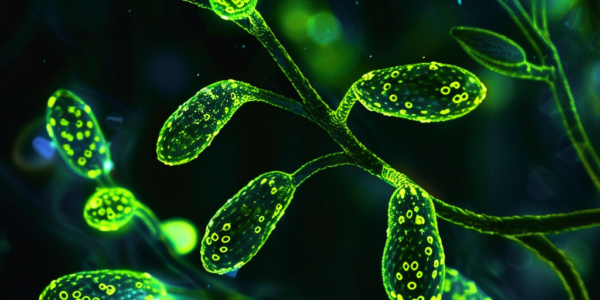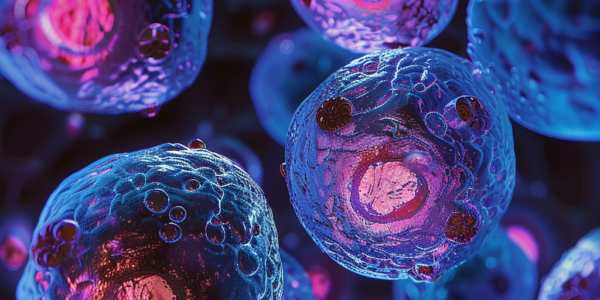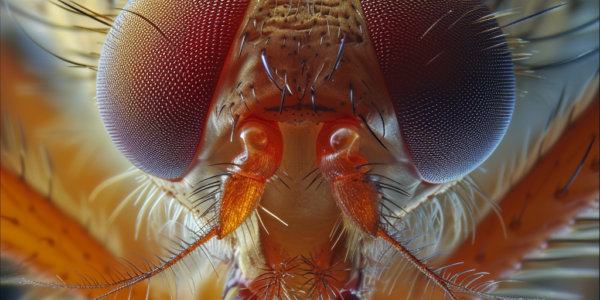Genetically Edited Pigs Immune to Deadly Disease Spark Ethical Concerns
US farmers are on the verge of introducing genetically edited pigs immune to porcine reproductive and respiratory syndrome (PRRS), potentially saving millions for the industry. Despite concerns from animal rights groups, the use of CRISPR technology has allowed for the creation of PRRS-resistant pigs, with regulatory approval anticipated as early as next year. Critics argue that improving living conditions for livestock should be prioritized over genetic modifications.
Discovery of Male Fertility Gene
Scientists have discovered a male fertility gene, SPOCD1, that works in partnership with the C19orf84 gene to protect early-stage precursors to sperm cells from damage. Understanding how these genes work together could explain the basis of severe cases of male infertility. The findings, published in Molecular Cell, shed light on the genetic causes of conditions like cryptozoospermia and azoospermia, which affect around one percent of men.
Study in Nature Reveals Genetic Determinants of Micronucleus Formation and Implications for Human Disease
A recent study published in Nature has uncovered crucial insights into genomic instability and its implications for various diseases. The research delved into the mechanisms underlying the sequestration of DNA in aberrant extranuclear structures known as micronuclei (MN), associated with genomic instability, aging, and diseases linked to DNA damage and mitotic chromosomal imbalances. The study identified 145 genes that play a significant role in either increasing or decreasing MN formation, many of which have orthologues associated with human diseases, highlighting the potential clinical relevance of the findings. The identification of Dscc1 as a gene whose loss significantly increases MN formation and the validation of the DSCC1-associated MN instability phenotype in human cells offer insights into potential therapeutic avenues for addressing genomic instability.
New Genetic Analysis Reveals Insights into Beethoven’s Battle with Hearing Loss
Discover the latest revelation about composer Ludwig van Beethoven’s health, shedding light on his progressive hearing loss. Genetic analysis on authenticated hair samples has provided unprecedented insights into Beethoven’s enduring struggle with hearing loss, offering a new perspective on his medical history and musical career.
Genomic Data in the All of Us Research Program
The All of Us Research Program is making significant strides in mapping the genetic basis of human disease, with a focus on diversity and inclusion. The latest release includes 245,388 clinical-grade genome sequences, with a high percentage of participants from historically under-represented communities and racial and ethnic minorities. The comprehensive dataset has identified over 1 billion genetic variants, with coding consequences for over 3.9 million, and is publicly available for researchers to access. This diverse dataset is expected to advance the promise of genomic medicine for all.
Study Reveals Dynamics of Meiotic Recombination in Plants with Repeat-Based Holocentromeres
A recent study in Nature Plants explores the dynamics of crossover patterning in plants with repeat-based holocentromeres, focusing on the holocentric plant Rhynchospora breviuscula. The study reveals a distally biased crossover frequency, highlighting the primary influence of mechanistic features of meiotic pairing and synapsis rather than (epi)genomic features and centromere organization in determining the crossover distribution in this plant species.
Groundbreaking Study Identifies the Impact of Radiation on Human Cells
A groundbreaking study led by a Korean research team has revealed the mutational impact of radiation on human and animal cells, providing valuable insights into the precise patterns of mutations induced by radiation. The research, published in the academic journal Cell Genomics, has established the impact of radiation on cells at the molecular level, paving the way for safer and more efficient radiation therapy.
Researchers Make Breakthrough in Developing Disease-Resistant Corn
University of Illinois Urbana-Champaign researchers have made significant progress in developing disease-resistant corn, a major win for growers. The study identified genomic regions associated with resistance to four major diseases, paving the way for the development of corn varieties that can combat multiple diseases simultaneously.
The Evolution of Chemosensory Tissues in Drosophilids
Discover the latest study on the evolution of chemosensory tissues and cells in Drosophila species published in Nature Communications. The research delves into the variability of chemosensory tissues among different species and the underlying genetic and cellular mechanisms, providing new insights into understanding evolutionary changes in chemosensory tissues at both global and individual gene levels.
Genes Are Not the Blueprint for Life
It’s Time to Admit That Genes Are Not the Blueprint for Life By Denis Noble Published on 05 February 2024 DNA sequencing has become routine, but the roles of individual genes can be hard to pin down. Philip Ball, in…










